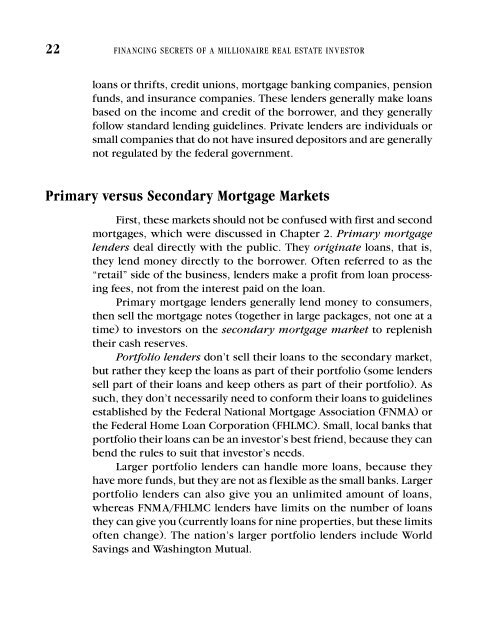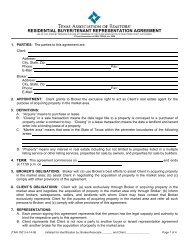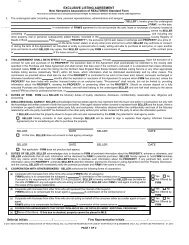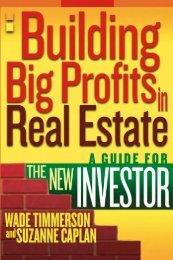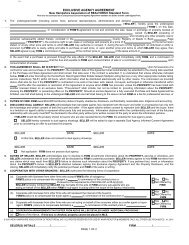financing secrets of a millionaire real estate investor.pdf
financing secrets of a millionaire real estate investor.pdf
financing secrets of a millionaire real estate investor.pdf
Create successful ePaper yourself
Turn your PDF publications into a flip-book with our unique Google optimized e-Paper software.
22 FINANCING SECRETS OF A MILLIONAIRE REAL ESTATE INVESTOR<br />
loans or thrifts, credit unions, mortgage banking companies, pension<br />
funds, and insurance companies. These lenders generally make loans<br />
based on the income and credit <strong>of</strong> the borrower, and they generally<br />
follow standard lending guidelines. Private lenders are individuals or<br />
small companies that do not have insured depositors and are generally<br />
not regulated by the federal government.<br />
Primary versus Secondary Mortgage Markets<br />
First, these markets should not be confused with first and second<br />
mortgages, which were discussed in Chapter 2. Primary mortgage<br />
lenders deal directly with the public. They originate loans, that is,<br />
they lend money directly to the borrower. Often referred to as the<br />
“retail” side <strong>of</strong> the business, lenders make a pr<strong>of</strong>it from loan processing<br />
fees, not from the interest paid on the loan.<br />
Primary mortgage lenders generally lend money to consumers,<br />
then sell the mortgage notes (together in large packages, not one at a<br />
time) to <strong>investor</strong>s on the secondary mortgage market to replenish<br />
their cash reserves.<br />
Portfolio lenders don’t sell their loans to the secondary market,<br />
but rather they keep the loans as part <strong>of</strong> their portfolio (some lenders<br />
sell part <strong>of</strong> their loans and keep others as part <strong>of</strong> their portfolio). As<br />
such, they don’t necessarily need to conform their loans to guidelines<br />
established by the Federal National Mortgage Association (FNMA) or<br />
the Federal Home Loan Corporation (FHLMC). Small, local banks that<br />
portfolio their loans can be an <strong>investor</strong>’s best friend, because they can<br />
bend the rules to suit that <strong>investor</strong>’s needs.<br />
Larger portfolio lenders can handle more loans, because they<br />
have more funds, but they are not as flexible as the small banks. Larger<br />
portfolio lenders can also give you an unlimited amount <strong>of</strong> loans,<br />
whereas FNMA/FHLMC lenders have limits on the number <strong>of</strong> loans<br />
they can give you (currently loans for nine properties, but these limits<br />
<strong>of</strong>ten change). The nation’s larger portfolio lenders include World<br />
Savings and Washington Mutual.


